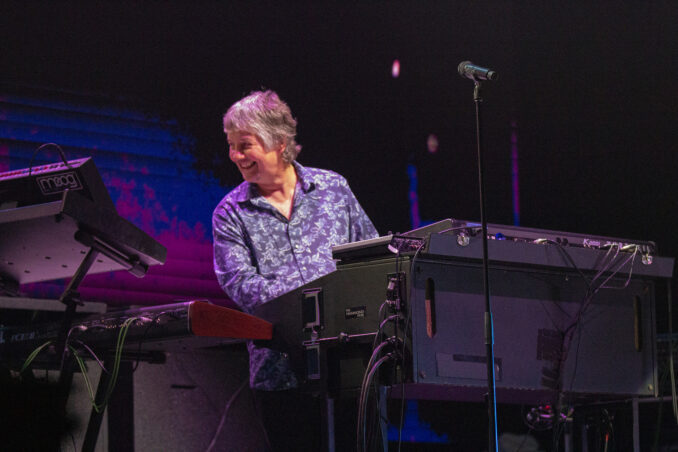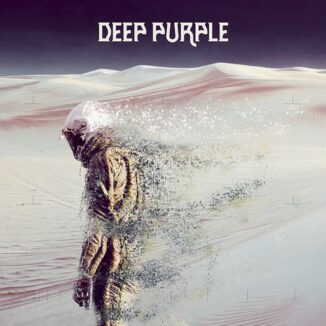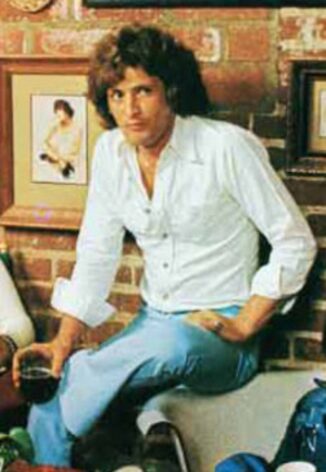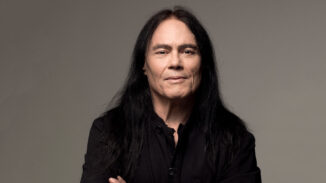
Don Airey came to prominence on Rainbow’s Down To Earth in 1979 before going on to play with a myriad of bands including Ozzy, Michael Schenker Group and Whitesnake amongst many others. Almost 20 years ago he was invited to join Deep Purple to replace Jon Lord. Mick Burgess called him up to talk about the new Deep Purple album, Whoosh!, next year’s UK tour with Blue Öyster Cult as well as some recollections of his days in Rainbow and love of Sunderland Football Club.
We’re living in strange times at the moment. How’s Covid 19 affecting you both professionally and personally?
It’s had a profound effect actually. I think it’s the longest time I’ve spent at home for 40 or 50 years having spent so much time on the road. It’s been a difficult adjustment, not for me but for my dear wife, who is not used to having me under feet for so long. I have enjoyed one side of it though being stationary and in the same bed every night. It gives you time to think and to do all of those things you’ve been meaning to do for years.
It must be very frustrating for you having just released a new album and being unable to tour and play those songs live?
It is very frustrating. I was very much looking forward to that. The album was great to make. We had such a great time in Nashville. You can always tell how an album is going to turn out by how it goes during the sessions. It was a fun time for all of us.
Your new album, Whoosh!, came out a couple of weeks ago. You must be pleased with the reaction so far?
Yes, the reaction has been great so far and everyone has been so positive. It’s always nice to read good reviews. Even Rod Liddle in The Spectator liked it. I was quite surprised at that.
It’s your highest charting album since Burn in 1974, hitting No. 4 in the latest album chart. It must be great to see that you can match artists who weren’t even born back then?
I’ve been doing interviews with journalists many of whom weren’t born when the band first started so Deep Purple have always been there in their lives, but yes, it’s always good to see one of your albums high in the charts, even after so many years in the business.
Is the name of the album “Whoosh!” an Ian Gillan idea?
Ha, yes, how did you guess? I believe it comes from Fawlty Towers where Sybil tells him to turn that racket down and he replies “It’s Brahms Third Racket dear”. Then he said “Whoosh, that was your life”. Ian loved that and that’s where the name comes from.
Your previous album, Infinite, was going to be your last and your Long Goodbye Tour was going to be your final tour. What changed?
It’s quite difficult to say really. Sometimes as a member of a band you just have to do what you are told by the powers that be. I think we said that we’d finish in 2018 and then just do a few gigs here and there. Of course, a few gigs become an avalanche. You learn that it’s very difficult to say no and here we are, we’re still going. The audience is more welcoming that ever and it’s getting younger.
The material is all co-written with the whole band. How do you tend to approach writing songs?
We just do it the way Purple always have. We turn up to rehearsal and sit down, then Ian Paice goes “blap!” on the drums and we’re off and we see what turns up. They worked that way with Ritchie Blackmore too. It was that way when I worked with Ozzy and that’s how Down To Earth by Rainbow came about. That’s just how I’ve worked in the past in other bands and it’s how Deep Purple work too.
This is your 5th album now with Deep Purple. How do you see the band evolving over those albums?
There’s been a definite improvement over that time. We had a big hiatus after Rapture Of The Deep and it was like we went underground. We had no press and didn’t really have a record company but everywhere we went young people were turning up to see us, we couldn’t believe it. We were doing about 150 gigs a year and that solidified the band so when Now, What? came out, we weren’t expecting much but it made such an impact that I said that we must be a better band than we thought we were.
The instrumental track towards the end “And The Address” was written by Ritchie Blackmore and Jon Lord on the debut album Shades Of Deep Purple. Why did you decide to re-record that for this album?
It was the record company’s idea. They are great fans of the band and conscious of the history. They thought it was a nice thing to do. We had a bit of a heated discussion, but we ran through it a couple of times and then recorded it live in one take. I like it very much, I love the ’60s vibe that it has.
You’ve worked with producer Bob Ezrin for the third consecutive album. What does Bob bring to the process?
He brought a bit of zing. He’s a real catalyst and he’s old school. When he comes into a room things start jumping and moving. He’s a great force of action. We rehearse as a band for a couple of weeks then he comes in for a week and tells us what he thinks in no uncertain terms and he’s part of the creative process. He knows what works and what doesn’t. We were actually going to call the album “Stop” because that’s one of his favourite words as when you’re half way through a take and his head pops up and he says “Stop!!” because it’s not up to what he wants. I think the production on this album is the best production of any of the five albums I’ve done with Deep Purple. I like the job that Michael Bradford did on the first one, Bananas, but I think this one is even better. It’s got a beautiful sound. When you’re involved with something like this it’s sometimes difficult to see the wood for the trees but now that the dust has settled I’m really enjoying to listening to it.
Deep Purple and Rainbow too worked extensively with Martin Birch over the years and he sadly died a few weeks ago. Did you ever work with Martin?
I worked with him on Cozy Powell’s Over The Top and on Bernie Marsden’s first solo album. You didn’t really notice him in the studio. He was very quiet and the opposite to Bob Ezrin. He was very firm and ready for the take and when it came, he’d get it. I remember when we did Over The Top, Cozy and I decided to get Jack Bruce from Cream to come and play bass and he’s such an incredible player. He’d been having a lot trouble with a couple of producers in the studio who said his bass playing wasn’t good and his sound was too old fashioned and he came to us a bit nervous. Jack came in and Martin asked him to play a few notes which he did and Martin just said “OK, thanks” and Jack went “Was that it?” and by doing that Martin was able to reassure Jack and in 10 seconds he gave him his confidence back. He did another wonderful thing as Cozy wanted to use an orchestra but it was going to cost ten grand. I offered to do it for the price of a pint on a synthesizer. So, me and Martin worked over night on the “1812 Overture” and we put the orchestration onto the album and it sounded fantastic.
You’ve always played a fair few new songs in your set when you go on tour. Are you looking forward to playing some of these songs when Covid is finally over?
I think we’ll be looking at “Throw My Bones”, “The Power Of The Moon”, “Nothing At All”, “No Need To Shout”. I think they’ve all got their merits but we will definitely be playing a good number from the album. We actually played some shows in France a while back and we got complaints that we didn’t play enough new material, so we added more new songs which is a great thing to do.
Your UK shows for October have been rearranged for next October and you will be joined by Blue Öyster Cult. Have you played with them before?
They’re old friends of mine back from when they toured with Rainbow in the 80s and then you keep meeting up on the festival circuit. They’re lovely people. Buck Dharma is an incredible guitarist, such a beautiful player. There will be a great vibe on the tour next year as we get on so well.
You’ve now been in Deep Purple for nearly 20 years, replacing Jon Lord in the band. Were you invited or did you apply for an audition?
They phoned me up and said that Jon and was ill and said that they had a festival in two days and asked if I could do them and I said yes. Roger Glover sent me a set list and I had very little time to prepare. We had a very brief rehearsal where we only went through two songs and Ian Gillan said we should do one of Steve Morse’s songs, “The Well Dressed Guitar”, because Jon would never learn it. Next afternoon Steve came to my room and taught me to play it and that night I was on stage at the Skanderborg festival. I was going to do three festivals and ended up staying for the whole tour. I thought nothing of it and thought how much fun it had been. I got a call later to say that Jon had left and that there were four names on their short list and all were mine and asked if I’d join. I don’t know if that was true though but that’s what they said to me.
Replacing an original, legendary member is always a difficult task but did the endorsement of Jon Lord and the way you shared the stage for the last few songs of Jon’s last tour and your first tour help ease you in gently?
I think it did. How we did that was, at the end of the keyboard solo there’d be a lot of smoke and the lights would go off then I’d duck down and Jon would come on and we’d change positions. From out the front it looked as though I morphed into Jon and I’d never heard such a cheer since Sunderland won the Cup. I thought it was a really nice way for me to take over from Jon and the fans seemed to really love it.
How did the fans react to you at first?
I never heard a peep. Nobody shouted for Jon, nobody shouted get off. It just seemed to go very well.
Did Jon help you in those early days to settle in by showing you how he played things or giving you advice here and there or were you thrown in at the deep end?
Jon really just left me to it. When I first played, after the first 10 seconds, I realised that if I tried to be like Jon, I wouldn’t survive. You’ve got to be yourself. I’m a different type of player to Jon. Jon left his Hammond Organ behind but it was in a terrible state so I got it stripped down and rebuilt but the heart had gone out of it so I just brought in my own gear. Jon was such a lovely guy. If he hadn’t been a musician, he’d have been a great Foreign Secretary.
Was it good working with Roger Glover again, who you were in Rainbow with?
It was good to see Roger again and I think that helped me when I first joined the band, to a certain extent as I knew his modus operandi. What I was expecting was a lot of moodiness and the usual trouble you get within a band but there just wasn’t any of it. It was just about getting down to business. I don’t think in my time in the band we’ve ever started a show late. It’s just a very professional organisation, a great crew and management. As a musician you like to find something to complain about but it’s very difficult with Purple
Last week it was the 40th anniversary of the very first Monsters of Rock show at Donnington. Rainbow of course headlined. What are your memories of the show?
That was an incredible gig, but it was very wet. It had rained two days before and it was all very muddy but the bands were fantastic. Judas Priest were just incredible.
Did you realise that it’d be Cozy Powell and Graham Bonnet’s last show with the band?
Cozy had been making a lot of noise about leaving but I never thought he would. Graham then said that if Cozy was leaving then he was too. The wallop just went from the band. My two biggest mates in the world had gone and left me alone.
You’ve played with Graham again over the years including a show at the Rock Garden in Easington a few years ago along with Dario Mollo and a couple of guys from Thunder
Yeah, that was Chris and Harry from Thunder and we played most of the Down To Earth album. The tour got thrown together pretty quickly and I just asked Graham if he fancied it. It was great fun especially playing at Easington Colliery. I think I went on in a Sunderland shirt.
“Eyes of the World” is one of the great Rainbow songs. Did you do the arrangement of “Mars” at the beginning of the song?
I came up with that arrangement. Ritchie didn’t like it at first and Roger put his foot down to get it included. I don’t think he liked it because he didn’t think of it. That’s always a problem with guitarists.
Did you have much involvement in the writing of the songs on Down To Earth?
It was written in a freezing cold rehearsal room in Connecticut and at that time there was no bass player or singer. There was just me, Ritchie and Cozy. It was a fascinating time. I don’t remember the reason for not getting a credit for the song writing, something to do with that they were cross collateralised or something. The band were in a bad way at the time, financially but Down To Earth saved the day.
Did the dynamics of the band change when Joe Lyn Turner and Bobby Rondinelli joined?
Absolutely yes. We became Transatlantic and that’s what Ritchie was after. He was very much into Lou Gramm and Foreigner. Him and Cozy used to row about getting too commercialised. He hadn’t wanted to do “Since You been Gone” at all and that was one of the reasons he left when he did.
You were a part of Rainbow during their commercial peak. Why did you decide to leave at that point?
I’d been in Rainbow for three years and I was absolutely worn out. I was just ready to move on and do something different.
You were born and raised in Sunderland. What was the music scene like in Sunderland back then?
It was great. There were a lot of bands like The Fireflies with Mick Grabham, who ended up in Procol Harum, and Nigel Olsson from Elton John’s band was in them too. They were the biggest band in the area at the time. I was in a little band called The Atoms and we played in church halls all over the place.
When did you leave Sunderland?
I left to go to Nottingham University and I started running bands while I was there in nightclubs and cruise liners. Then I moved to London and that’s when I met Cozy and I played with him for a while.
Do you still have family up here?
I do. I’m actually staying in Sunderland right now.
You’re a Sunderland fan too. How often do you get to games these days?
I get to as many games as I can when I’m back in the area. Nobody really knows what’s going on at the moment. I’ve got a few contacts at the club but they’re keeping schtum. Something is happening apparently, but I don’t know what. It hasn’t been the best of times for Sunderland but you can live in hope.
Deep Purple’s new album Whoosh! is out now. Deep Purple tour the UK in October 2021.
Interview By Mick Burgess




Be the first to comment